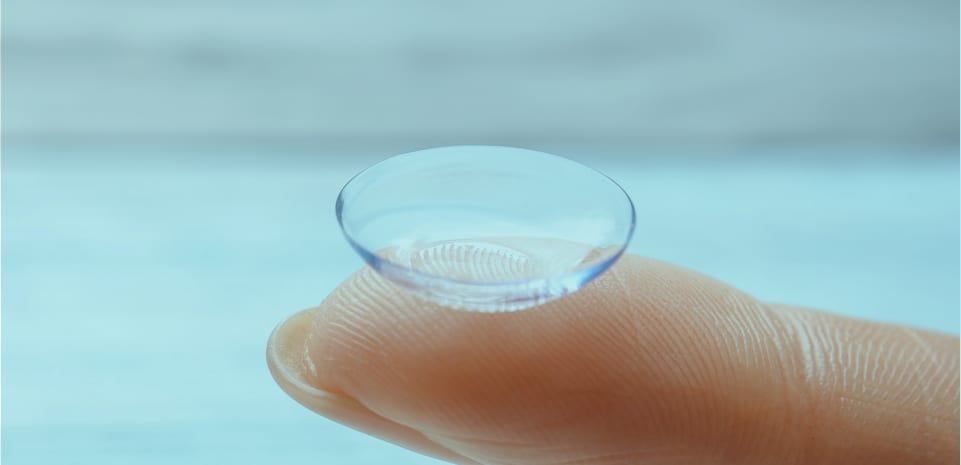Irregular Cornea Contact Lenses
Disease, trauma, or eye surgery can cause irregular-shaped corneas resulting in distorted and blurred vision.
Contact lenses designed for these corneal irregularities are wonderful tools to help a patient regain functional vision. There are a variety of soft and rigid contact lens options for these patients. Here are the options for irregular cornea fitting you will find here at Metro Optics.

Keratoconus Contact Lenses
Keratoconus causes the cornea to become terribly misshapen, creating progressive nearsightedness and irregular astigmatism. The condition can also cause increased sensitivity to light and discomfort while wearing typical contact lenses.
Specialty lenses for keratoconus include soft, rigid corneal and scleral options. Of special note, the ComfortKone Keratoconus Aspheric corneal lens that Metro Optics offers has an FDA 510k clearance for its design in Keratoconus applications.
Post-Surgical Contact Lenses
Following laser vision correction, or corneal transplant surgery minor corneal irregularities may be present causing vision to be slightly worse than ideal.
Specialty lens with specific features aimed to fit the surgically altered cornea can be of great benefit in correcting the vision in these cases. The options for these patients include soft, rigid corneal and scleral lenses.
Presbyopia Contact Lenses
Presbyopia happens to everyone at some point and bifocal or multifocal vision corrections become necessary. There is a wide selection of lens designs to address presbyopia that are highly effective.
The most popular contact lens for presbyopia is a multifocal lens that can deliver clear vision at all focal depths from near to far. Other lens designs have distinct zones specifically for distance and near vision.
Contact lenses for the presbyopic eye come in soft, rigid corneal and scleral options.
Scleral Contact Lenses
Scleral lenses are an excellent option for some atypical eyes. As the name implies, these are large diameter lenses that rest on the sclera (white part of the eye) and vault over the cornea, making it possible to deliver good vision to individuals with corneal irregularities. Additionally, this style of fitting that creates a tear reservoir around the cornea can be ideal for addressing corneal surface disease and dry eye.
Spherical/Astigmatic Contact Lenses
Standard spherical correction for nearsightedness or farsightedness is common. While most people may use commodity disposable type lenses, custom contact lenses can often offer a higher quality vision correction.
Astigmatism is another common condition that is regularly addressed by contact lenses. Much like the standard spherical prescription where commodity disposable type lenses may be used, custom contact lenses can offer a higher quality correction in these cases as well

